When first you start looking at starting an online business or a blog, everyone starts talking about the fact that you need to find a niche… But how do you find your niche online?
It can sometimes be really hard to sit down and come up with a niche, especially when you are worried you might pick the wrong one. I know I struggled to come up with a niche when I was getting started. Without a niche, you cannot get started at all.
So, I want to help you speed up the process and by the end of this guide, you will hopefully have a great idea for your niche and then you can get started with your blog without any further delay.
These 7 steps will not only help you find a niche, but they will also help you understand whether it’s the right niche to go with. There is opportunity with the majority of niche ideas online, but it’s also got to be the one that you are really interested in, and not a fad that will bore you within a month or two.
You also need a niche that will help you stand out from the crowd, help you achieve your goals and have you earning some money at the end of it (this is usually why we are first looking for a niche online, right?).
Let’s get started with, first taking you through the 7 simple steps we will be going through…
Disclaimer: As the owner of SmartPassiveIncomeSuccess.com, I’ve tracked down special deals for products, tools and services mentioned herein. When you click on my affiliate links on this page to make a purchase, I may get a small commission, and you’ll definitely get a great bargain. This is a win-win advantage for both of us. Learn more here.
Table of Contents
Find Your Niche Online: 7 Simple Steps
Getting started can be really hard, if you don’t know what you’re going to get started with. If you’re staring at a blank page, it can be really frustrating. But you may be someone who has loads and loads of ideas, but cannot pinpoint the right one to go with. Which can be equally as frustrating.
Don’t worry, that is what I’m here to help you with. By the end of this guide, you should not only have an idea of which niche is the right move for you, but also feel like you’re ready to get started with launching your online business, blog or online store. Here’s the 7 simple steps we’re going to talk you through today:
How to Find Your Niche Online: 7 Simple Steps
- Think about your interests and passions
- Solve problems for your target audience
- Check out the competition
- Do some keyword research
- Assess your niche
- Figure out your unique selling point
- Test out your idea
These 7 steps are integral to ensuring you find your niche online which suits you and your target audience, and can ensure you are on the right track from the start.
Find Out More...
- Once you’ve found your niche online, take the next step and learn how to start a blog
- Looking for inspiration? Check out our list of Niche Website Ideas
#1 Think About Your Interests and Passions

I get that you might be looking at starting a blog as an opportunity to make money… I know I was when I got started in 2016. But it’s important to first take a moment and say that you should focus more on other areas, rather than chasing a profitable niche even though you have no interest in the subject matter.
The reason I say this is, that to make money from blogging you need to create a lot of online content. Whether that be written blog posts or YouTube videos, you need to create a lot of helpful content that helps the reader.
So, if you picked a niche that you have no interest, knowledge or passion about, you might as well give up now. I love helping people, but on subjects I know a lot about and enjoy talking about. If I were to choose a niche within arts and crafts, I might be able to think about a few things to write about.
But I would bore easily with it, and end up not creating any content and my blog would die.
That is how so many people end up choosing the the wrong niche. A good example would be people who chase the commissions you would get from selling technology. But do you know enough about it to help others make the right purchasing decisions?
Can you describe all of the features, specifications, etc. that a high-end user would ask about that tech?
Can you help a beginner pick the right laptop for their daughter going to college?
So, picking a niche just because of the commission rate or because of the price of the products is the wrong way of picking a niche.
The actual first step to find a niche online is to think about what you really enjoy doing, like a hobby or a passion you have. This is a topic that you should already enjoy talking about. It also gives you a good idea that other people will also enjoy the same subject (so, you have an audience to target) and there is little chance of you boring easily, and you know what kind of problems or questions people will have about it.
So, what are you passionate about? What do love taking about? What are you considered the expert in? I know so many people that come to me about their techie issues and want my help to sort out (including my wife).
Online, it’s people coming to me for help about blogging or affiliate marketing. I love helping people, so it’s a natural fit.
For you, you need to find something that you are not going to tire of easily. If you want to make money from blogging, then you are going to need to pick a niche that you are going to love writing about in a years time.
Anyone worth their salt, will tell you that you need to give a blog a year, if you want to consider it working as a success.
To come up with some ideas for your niche, I would suggest you sit down with a cup of coffee or tea, and have a brainstorming session.
Write down all of the ideas that come to you, even if they might seem silly at the moment. We need an initial list to drill down on more as we go through the steps. Even write down any ideas that you have already dismissed, thinking they weren’t a good idea.
If you’re stilling struggling for inspiration, here are some things to think about:
- What do you enjoy doing in your spare time? What help and advice do you commonly give out?
- What websites or blogs do you regularly visit? What subjects do you enjoy learning more about?
- Do you have any subscriptions or memberships? What are they? Why did you sign up for them?
- Is there a topic that your friends turn to you about to get answers about? What are you the “expert” in?
- Do you belong to any clubs? What are they and what is it about them you enjoy?
- What interest or hobby would you be interested in learning even more about?
- What problems do you face at the moment?
- What makes you happy?
This hopefully also helps you understand that the best route when starting to look for a niche is to go with something you already love to do. Making money with blogging is directly linked to how much you enjoy what you’re doing…
Make sure you write everything down, don’t worry if it feels obvious, as that is how you discount something that could be your best idea for a niche without even considering it.
Another advantage of writing these ideas all down is that it helps otherwise invisible skills and interests come to light.
For example, you love baking, but you’ve never considered how you could turn that into your niche, as it is only something you do on the weekends. But you combine baking with a love of Harry Potter, and then it becomes an awesome idea for a kid’s party business.
The most important aspect to consider when choosing a niche is picking something that you love!
If you have a genuine interest in the niche you pick, then you will have the edge over someone who is just looking to make money. Something that interests you will also see you putting in more time, effort, and genuinely wanting to do the best job you can.
Picking a niche is about picking the right niche for you. A niche is a very small and specific part of the market, just like you are. We’re all different and we all have different interests. So, it’s only natural we go with something that we know a lot about, enjoy doing or love.
The majority of niches can be monetised. I cannot say all of them, but most of them can. If you can find products or services related to your interest or hobby, then it can be monetised (typically). But the difference is that writing about something you enjoy is much easier than writing about something that you don’t enjoy, or know nothing about.
Before you move on, ensure you have:
- Sat down, cleared your mind, and have a good think about your interests and hobbies
- Made a list of all of your interests and passions
- Reviewed whether any of your interests or passions overlap or complement each other
Find Out More...
- Whether your passion lies with food, makeup or car parts, we have a guide to help you start selling online!
#2 Solve Problems For Your Audience
Regardless of whether you have spotted your preferred niche idea, or you’re still at the point of trying to narrow it down. Now is the time to review your niche and see if it’s actually a viable option for you to proceed with.
The first thing you should do is to look at what problems there are within your potential niche. And then decide whether you an solve any of those typical problems for your target audience. This is the baseline for any profitable business.
You need to combine your passion with practicality, by offering solutions to your customers. You need to understand your audiences pain points, in order to get an idea of the types of problems that they need help and answers to…
How do you do this? Here are some easy ways to identify the pain points of your target audience:
- Browse Online Communities: You can check out online communities like those at Wealthy Affiliate or Quora. See what are the typical questions , comments and discussions that are going on with people in your target audience. Check out other websites that are based on your target niche. What are people writing in the comments section. What subject matter are they writing about? Write down any of the common issues people are having. Is there anything there isn’t a specific answer too?
- Talk to People: Just because you are looking at starting an online business, doesn’t mean that getting out and talking to people who are your target audience to ask them what they would want to see when coming to your blog. If it’s a hobby, then find people who also enjoy that hobby. Ask them what are their pain points? What would make their lives easier? What is missing from the market? etc.
- Review the Competitors: Identify the key players within your target niche and assess the problems they are solving. What questions are they answering. Are they missing any important gaps that you could then fill? They typically are quite broad when they get to a certain size, so if you were to focus on a niche, how are you going to become the go to for that niche market. Remember to check out their social media feeds for what their readers/customers are saying.
Try to think differently about how you can help them get their problems solved. An example would be, you are finding most of the popular products or services related to your niche are expensive. Which is a problem for those on a tighter budget. Could you offer a similar service for less money? Or at least make it more convenient. Could you find a good alternative to promote, that is not as expensive?
The prime example would be Uber. They made getting a lift much more convenient that trying to flag down a taxi. Instead you use an app on your phone. It took an existing service which wasn’t ideal for customers, and solved the problem with an easy to use app.
Before you move on, make sure you have:
- Wrote down a list of the problems that you could help solve within your potential niche
- Thought about how you are going to solve those problems
- Removed any niches from the list, where you can’t find a problem to solve. Or, where you are unable to solve the problems that are present
#3 Check Out The Competition
If you’ve taken the time to do steps 1 and 2, then your list of potential niches should be a lot shorter. We’re hopefully now at the point where you can really focus on finding that final niche idea. To do this, you’re going to need to do some competitor analysis…
Competition is healthy, gone are the days where you would find a market with no one else within it. It also helps you know that there is a market within that niche. If people are blogging about it, then that means you have an audience to go after.
By going for a niche, instead of staying broad, it gives you a good chance of breaking into the market.
To start off with, have a quick search on Google and make a list of the top results that come up at the top. Then, go through and take a look at their websites, their social media, their products or services, and branding. Here are some of the questions you should ask yourself as you do this analysis:
- What type of content are they creating?
- What is the quality of the content like? High or low quality? Could you do a better job?
- What tone of voice are they using?
- Who are they targeting? Who’s their target audience?
- How regularly do they release content? (Daily, weekly, less frequently?)
- How do their engage with their audience?
Taking the time to understand what your potential competitors are doing, and what you can do differently to stand out, is important for creating a well-informed plan for your niche.
After you’ve done this, take a look at the number of adverts that are listed at the top of Google – The ones that look like this:
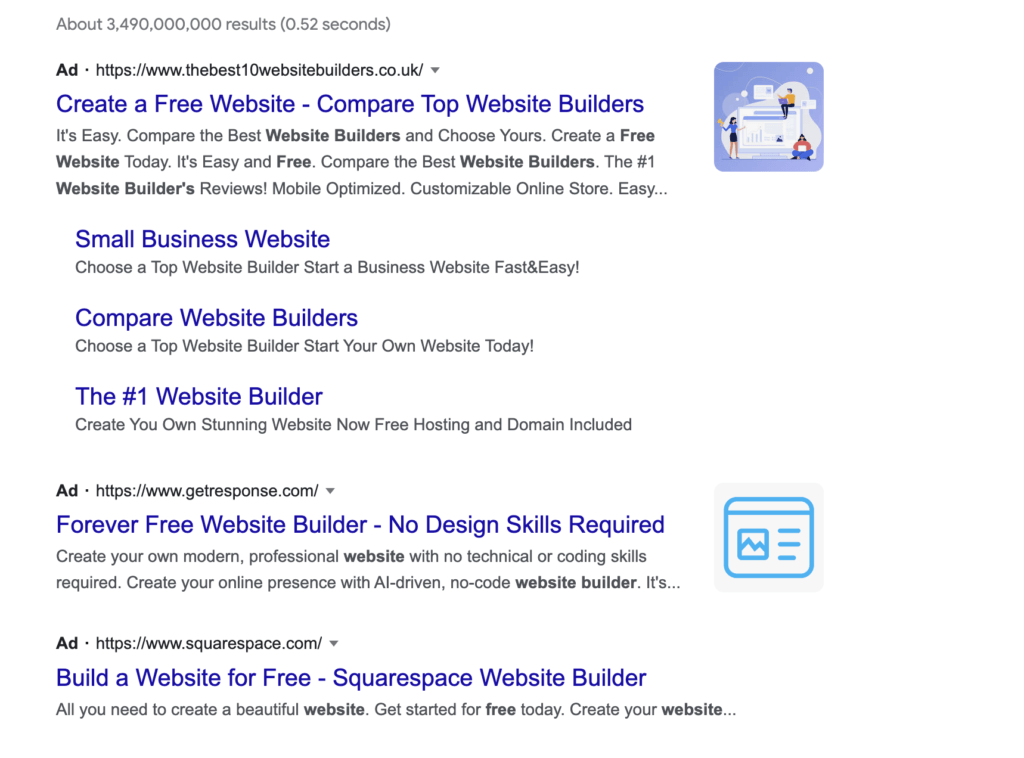
These are called sponsored ads, where people have paid to appear at the top of the search engines. If you find that when searching within your niche that you have too many paid ads, then that is something that means it isn’t a viable option for your niche.
Search terms with fewer paid results will be much easier for you to break into than search terms that are full of paid ads, where you won’t appear on the first page at all.
Before moving on to the next step, make sure you have:
- Made a list of the top competitor sites
- Analysed those competitor sites
- Thought about what you can do differently or better to carve yourself a piece of the market
- Analysed the Google search results page to see if your niche is too competitive (too many paid ads)
Turn Your Passion into Profits
#4 Do Some Keyword Research
Keyword research is where you start to understand what people are searching for, when they go to Google or Bing. Your goal is to find keywords with a high search volume, as that means there are lots of people searching for it.
There are plenty of online tools to help you carry out keyword research. Five of the best are:
Google trends is a free tool that allows you to see how popular certain search terms are over time. This allows you to see if there is interest within your given niche, or is it waning. The example below is for a food blog, which is a typical evergreen topic. So, interest is typically high throughout.
You can also search by region. This was a worldwide search, but you can be as specific as you like. All you need is a free Google account and you can do some analysis on the list of niches you are currently left with.
This is a free tool by Neil Patel, who is a top marketer. I’ve learned loads from reading his blog!! He has brought out a free keyword tool to help you find new, related keywords to target within your niche too. It’ll also help you with content ideas, plus you can enter your competitors domain to gain some important insight into their SEO strategy.
Jaaxy is the keyword research tool that we use. It also offers valuable tools to check out your niche, including who is ranking at the top within your niche. That way you can analyse why they are at the top, and identify your opportunities. It is a paid tool, although you can get 30 free searches as a starter member with Wealthy Affiliate (Check out this awesome training and community platform here)
It helps you analyse your niche and identify opportunities and is a fantastic tool. You are going to need to invest in a keyword tool at some point, we have found Jaaxy is a strong contender and is a reasonable price. A premium account with Jaaxy is $49/month. But it is included in the Wealthy Affiliate membership, you can learn more here.
SEMrush is a powerful keyword research tool, giving you an all-in-one services that covers everything from specific keywords being used by your competitors, to long-tail keywords and related search queries. SEMrush does have a 7-day free trial, but is then $99.95 per month unless you cancel
Ahrefs Keyword Explorer is a tool that provides keyword suggestions and tells you how difficult a keyword is to rank for. A helpful insight when trying to break into a new niche. It has a 7-day trial for $7, and then costs $99 per month
I personally feel Ahrefs and SEMrush are awesome, but are price a little out of the way for someone starting out with a new blog. I find Jaaxy does as much and is more palatable for when getting started.
But if you are starting an online business with your own products and have the budget, SEMrush and Ahrefs are a good investment for you…
The best way to get started with keyword research is to think about the questions you want to answer. Are people actually searching for these questions? How many people are searching for these terms? What are people searching for?
Remember to explore the what, where, when, why, how, etc. Keep going until you have a clear understanding of what people are searching for within your niche, and why.
Another reason for doing keyword research is to find out which keywords to target. By typing a general topic into a keyword research tool, you will start to find more specific keywords. Look out for the most common questions people ask, and then look at related topics, as you might find more specific questions that people want answering that others may have missed.
You’ll find that those common keywords will have a lot of competition, which makes it harder for you to get your blog out there. But there will always be low hanging fruit, that are easier to rank for related to the same topic.
Before moving on, make sure you have:
- Tried out a few of the keyword tools listed above
- Discovered which keywords you want to target
- Checked out how popular or competitive your keywords are
- Found some low hanging fruit (a keyword with some searches, but not many competitors for it)
#5 Assess Your Niche

I’m hoping you are now starting. to see that it’s all coming together now? You should have a good idea of which niche you are going to be investing your time in. But before we go any further, let’s assess your niche to make sure it’s a viable and the right move…
At this point, you should have chosen a topic that you’re passionate about, we know what the competition is like, and we’ve done some keyword research. No it’s time to do those all-important final checks to make sure it is the right niche for you…
1. Is It Profitable?
If you have any aspirations of monetising your blog, business, or online store, then you need to consider whether it’s profitable or not? Investing time and effort in a direction that has no chance of making money, is a total waste of time.
There are a few ways of finding out if your niche is profitable:
- Check out trending products on Amazon, Google, and eBay
- Identify best-selling items on competitors websites
- Use tools like Exploding Topics to find out what is trending
- Use Sites like ClickBank, ShareaSale to see how many of certain products they have related to your niche
As an affiliate marketer, I tend to use Amazon… If Amazon sells products related to my niche, I know there is an opportunity. They also have an affiliate program, which you can learn more about here.
But there are a lot of affiliate programs you can consider. But it will depend on your chosen niche. For example, if you are starting a health blog, here are some examples of some great affiliate programs…
2. Who's Your Target Audience?
The next step would be to identify who your target audience is… You want to have an avatar to picture when you are creating your content. Your content needs to be ideal for that person in your mind’s eye. This will affect:
- Your tone of voice
- Your marketing tactics – which social media channel to use, email marketing, etc.
- The platforms you use to advertise your brand
- The platforms you use to engage with your target audience – forums, etc.
- The content you create
- The images you use on your site
- Your design choices
There are loads we could have added to the list, but you get the idea. Your target audience will affect your decisions for how you try to engage with them and bring them to what you have to offer.
People lack patience online, so if you can draw them in straightaway, you have the edge to try and keep them on your site.
Think about your target audience’s age, gender, lifestyle, budget, pain points, hobbies, etc.
This is how you can assess how best to build on your niche.
3. Is It An Evergreen Niche?
It is very tempting to jump onto a hot up-and-coming niche, thinking that it will be the ideal choice. But is it just a fad that fades away within a few months, leaving you with nothing to offer as no one is interested in it? Do you think the interest is still there with fidget spinners?
An ideal choice for a beginner is to go with an evergreen niche. Something that will interest people all year around. That is why many bloggers do a food blog, as an example. People are always looking for different things regarding food.
Meat-free is big in the UK at the moment. Is it a fad or is it evergreen. I don’t know, but there is still a potential market there.
This comes back to the problems you’re trying to solve for your target audience. Another factor is that you want people to keep on returning to your blog, as people don’t buy unless they trust you. A fad niche website makes that harder. An evergreen niche idea with a blog full of helpful content, which helps them get the answers they need and providing solutions to their problems helps facilitate that too.
Use Google Trends again to see if your niche is an evergreen topic, are there searches all year around. Then it’s a good option.
Before you move on, make sure you have:
- Assessed your niche
- Considered the profitability of your niche
- Considered your target audience
- Reviewed whether your niche is evergreen or just a fad?
- Made the decision as to whether your niche is suitable to launch with
#6 Figure Out Your Unique Selling Point
What is going to make you stand out? Why should people come to you, instead of going to your competitors?
This is an important step in finding your niche online and then in ensuring your niche is a successful one. To stand out from every other website online and attract excited new visitors to your online niche, you need a USP (unique selling point).
If we go back to the Uber example, they stood out from the others by introducing an app as a new way of booking a taxi. But it also offered people a way of tracking the car too. With a lower price than the others.
When starting out, it can be hard to have a unique selling point. So, a more prudent question to answer is – What value can I add to this niche?
This is where you can think back about your passion, talent, or expertise and combine them with all of the analysis you would have done at this point to think about what is missing from that niche and how you can offer value to your readers.
If your competitors are lacking in a certain aspect, can you step up and stand out with a fresher look?
Perhaps you have unique experience or knowledge you can offer to your audience, like. a one-on-one consultation to help them. Or an ebook or video call to go alongside an online course.
Look for the gaps in the market, and how you can fill it with an appropriate product or service.
Another way of adding value to your niche is to embrace “micro niches”, like accessories or complimentary products.
Before moving on, make sure you have:
- Think about what your unique selling point could be or what value can you offer
- gone back through your competitor analysis to identify possible opportunities to improve and stand out
#7 Test Out Your Idea
You’re now ready!! The final step before launching your niche is to test out your idea online. After your research, you should have a clear plan of what you’re going to, so the only thing left to do is DO IT!
This requires you to build a website, start an online store or start your blog. Either way, we can offer you help if you get stuck. We recommend WordPress as its the most versatile platform for whichever direction you’re going to go.
Don’t worry if people are not finding your blog straightaway, it takes time for both the search engines and people to find your blog. But there things you can do to ensure you are going on the right path, which you can read about here.
Alternatively, you can sign up to my 7-day Online Passive Income Bootcamp below and get my personal support through helping you choose the right niche and getting your own blog up and running, ready for traffic.
Turn Your Passion into Profits
But once you do start getting people coming to your site, ensure you keep an eye on your analytics. This will help you understand what they like and what they don’t like. If people are turning away before reading much on your blog, it shows you are not getting their attention straightaway, or that you are not helping them with what they are after.
Things you can do prior to getting real traffic to your site, is to ask people who are in your target audience range to check out your site and give you their opinion. This way you can understand what tweaks you need to make…
Find Out More...
- Learn How to Build a Website for your niche
- Learn How to Monetise Your Blog
- Learn How to Find Free Images for Blogs
- Learn about the awesome training platform that helped us learn it all
Find Your Niche Online: Conclusion
Just take a moment to think about how long you’ve come from sitting down and writing down a list of your hobbies and passions, to finally having a niche ready to get going with.
Rushing into anything isn’t going to be the right path to success. So, it’s just as important to take the time to do your research thoroughly and ensure if you are going to be spending hours on a niche website, it’s the right direction you are going in.
It’s important to try and find a unique selling point, find some good keywords with low competition, help solve problems, and work out how you’re going to be different from the rest of the pack.
I know it might feel a little overwhelming, so we want. to offer you one final tip – plan carefully, but not plan forever.
Your niche will never take off if you don’t actually publish your blog website. You will make mistakes, we all do. But I find, you end up learning more from those mistakes and come back better than ever.
Go through our steps, ask me questions if you ever get stuck through the comments section, and don’t stress over it. The idea is you enjoy it. That is when you will create the best content, etc.
Here’s a recap of the 7 simple steps…
Find Your Niche Online: 7 Simple Steps Recap
- Think about your interests and passions
- Solve problems for your target audience
- Check out the competition
- Do some keyword research
- Assess your niche
- Figure out your unique selling point
- Test out your idea
I cannot wait to see what you’ve all come up with – so, please come back and let me know how you all got on. Haven’t started yet? Then what are you waiting for…. Go and grab a pen and paper and start listing down your hobbies and interests – before someone else finds your perfect niche first!

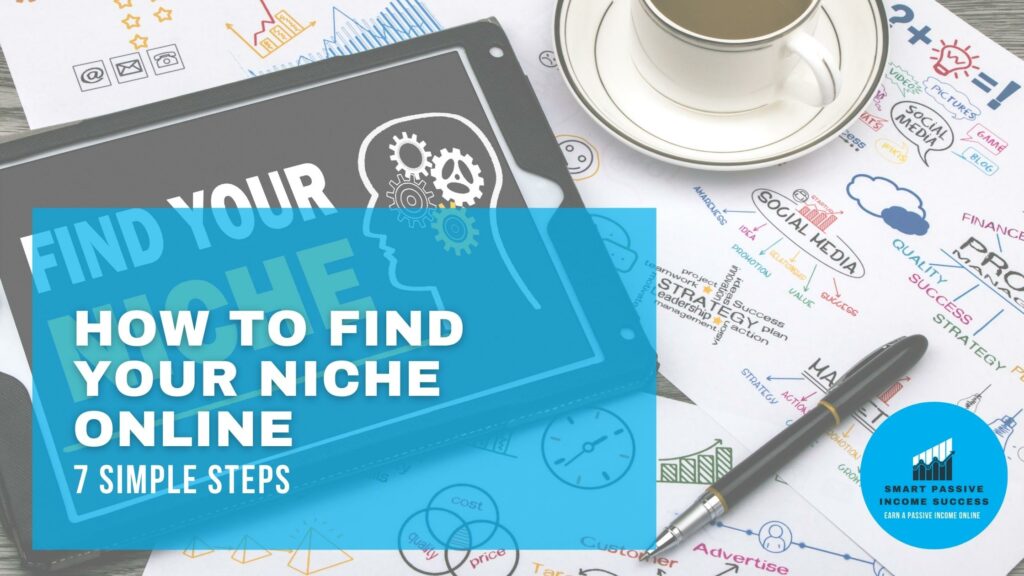
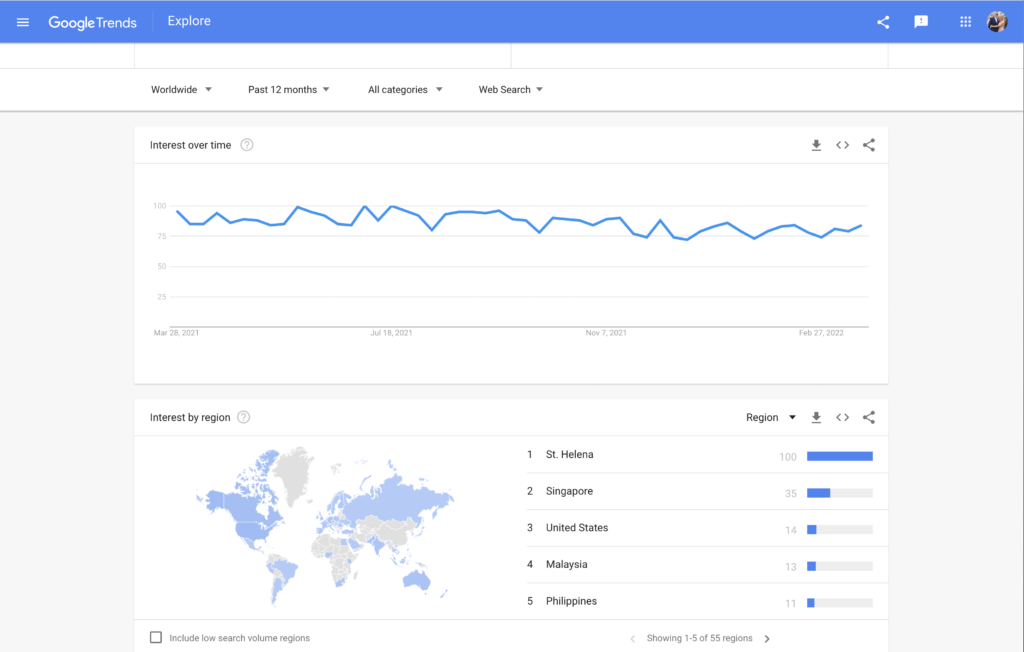
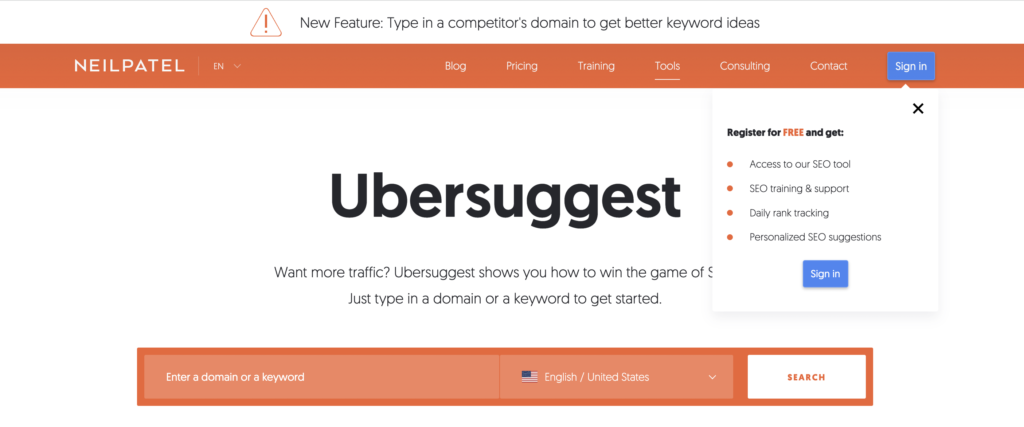
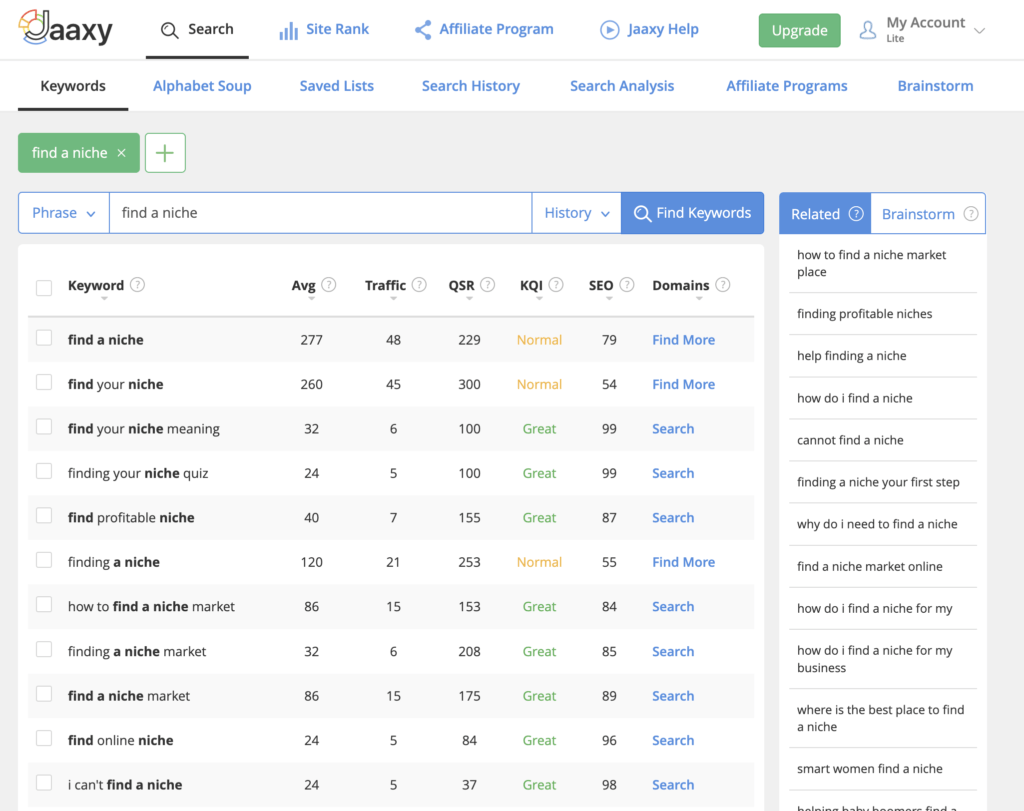
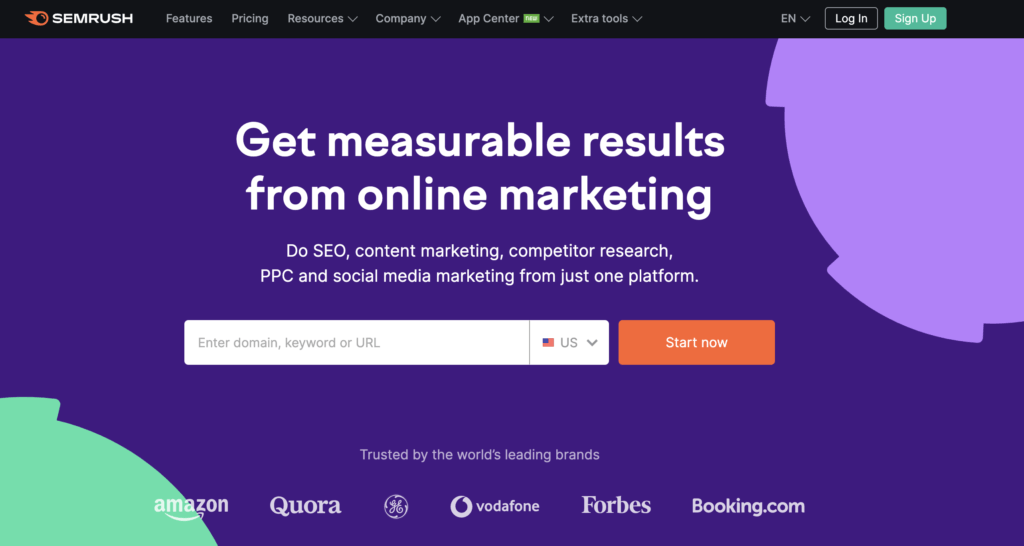





I wish I found this article while I was new! It would have helped me avoid many pitfalls! Either way it has helped me to figure out my next site so thank you very much!
Hi Brianna,
thanks for checking out my guide! Glad you found it useful… There are just a few pitfalls out there, but hopefully, you are on the right track now?
Take care,
John
Hi John. Thanks for your reminder on how to choose a niche. I’d say the most important part of any online business, would you agree? I remember I long I was wondering, searching and comparing until I came with the number one. I like your tip number 6, about the unique selling point. I am wondering if you have some real-life example we could associate this topic with. Great piece of content. Cheers
Hey Julius,
thanks for checking out our blog! It’s always good to go back over these topics at times. It is a really important factor when getting started and choosing the wrong niche can really set you back in your plans. Having a Unique Selling Point is really key, especially when selling your own products. Why would people choose you over others?
It’s sometimes difficult when you are in the MMO sector to stand out from the others. But your USP could be offering a mentoring service, or templates to download to help others. It’s about making sure that you are shown as being really helpful. As many people are just trying to sell. So, your USP would be helping one or one, etc.
Thanks
The seven steps that you give are good ideas to find our niche online and to doing the right research and seeing if it is going to last forever meaning evergreen niche. Your article has helped us find new ways to target our niche narrowing it down to the right topic to discuss.
Glad to see that you broke it down easy for us all.
Cheers,
MnD
Hey Matthew/Deloris,
thanks for checking out our blog!! I really do hope it has made it easier for you to find your niche online! Wasting time on the wrong niche will set you back loads. But it is clear that we often rush the decision, as we want to get started as soon as possible. But I actually advise you wait a little, and make sure it is absolutely the right decision for you…
If you ever need any help, let me know
Hi John,
I like this step-by-step tutorial to help people find a niche for which we have a passion. In that case, we will have more chances to make money through blogging and feel like doing our hobbies instead of work. You had listed many things that I never thought of when I started my humble blog, so it’s a good time for me to refresh my planning for my blog, especially for the part of USP.
Thanks a lot for sharing.
Matt
Hey Matt,
thanks for checking out my blog!! Glad even a current blogger has found my guide useful!! There is always an opportunity to learn, as the online world is ever-changing!
Thanks again,
Hi John, thanks for sharing such useful tips on choosing a niche. It took me ages to make a final decision, and was based on my passion for cats. It also took time for me to work on my target audience which I didn’t do from the start! I. Like the idea of creating a unique selling point and will definitely give this lot of thought.
Hey Kathy,
thanks for checking out my blog post! Glad you found it useful! Getting your target audience is important, and having a USP to help bring that audience to you is also key.
All the best,
John
Thank you for this useful article. i had been looking for a great a niche to start my other online busines and your article is so useful. I will bookmark it.
Hey Thabo,
thanks for dropping by and checking out my blog post. I’m so glad you found it useful in helping you find your niche!
All the best,
John